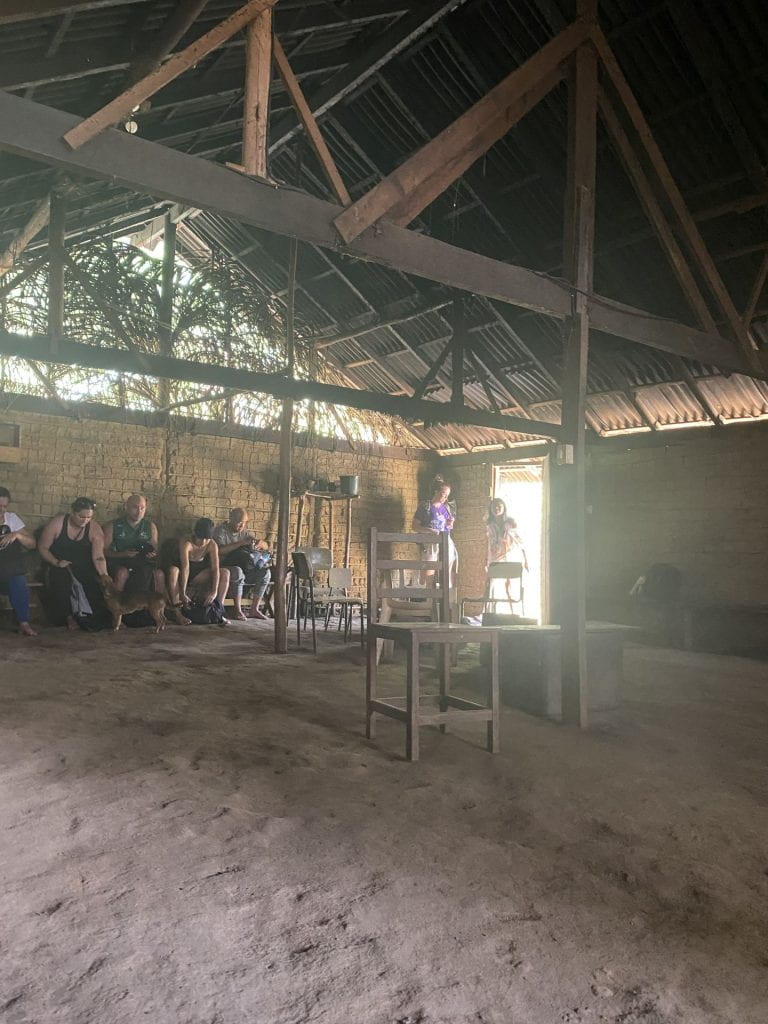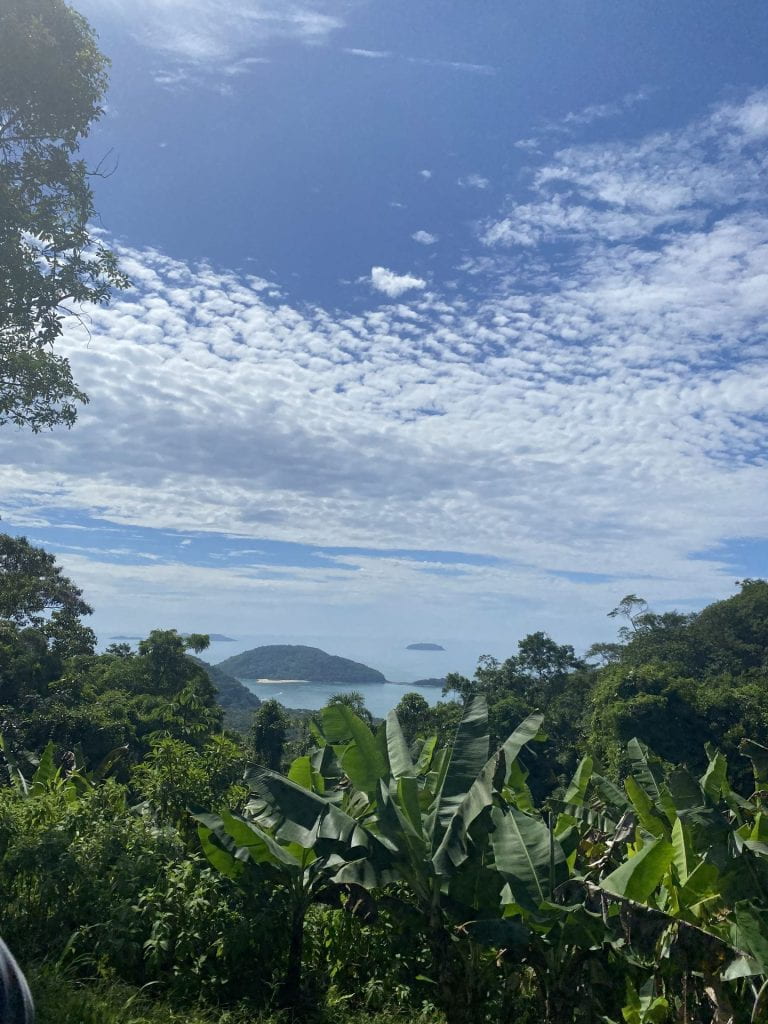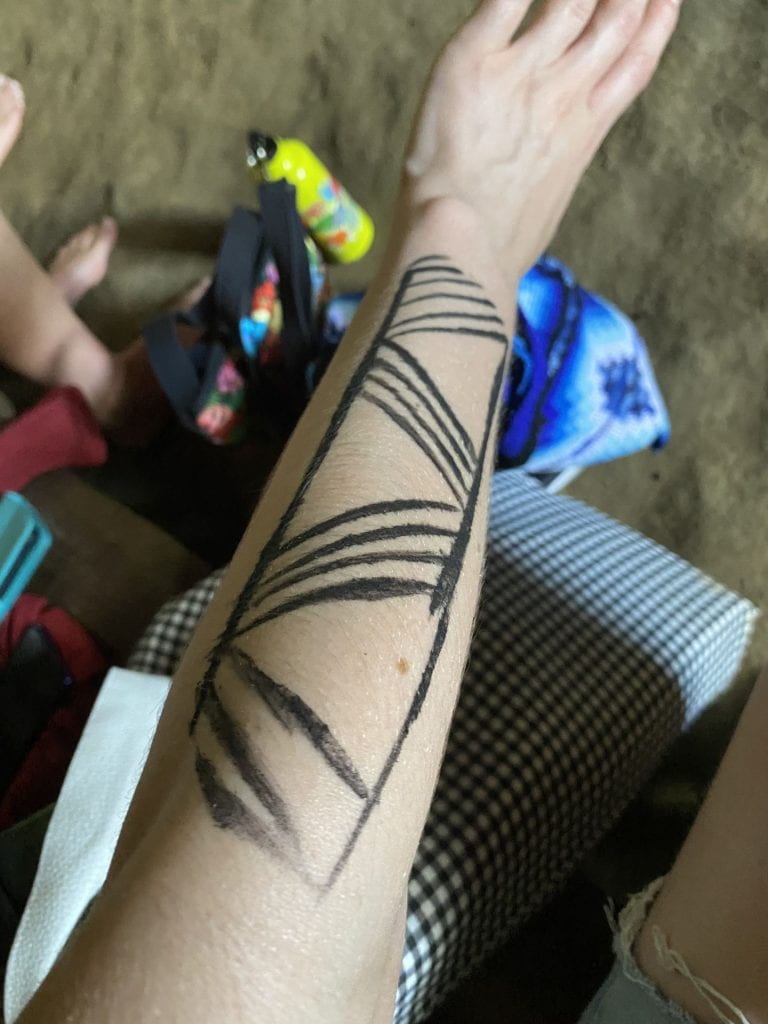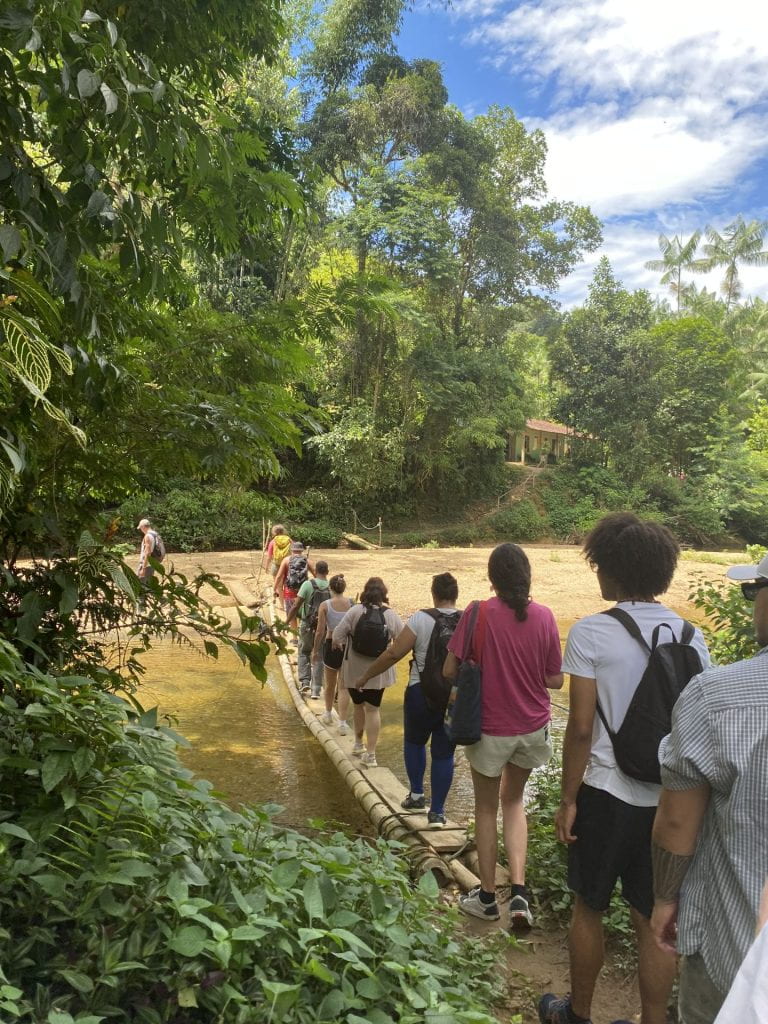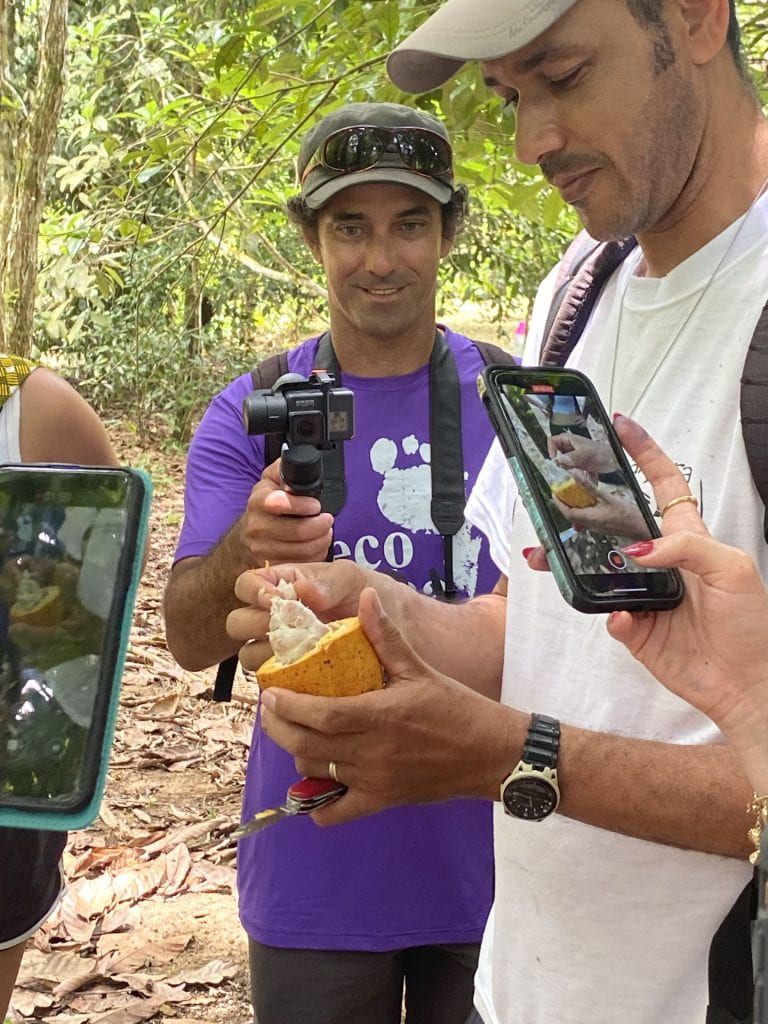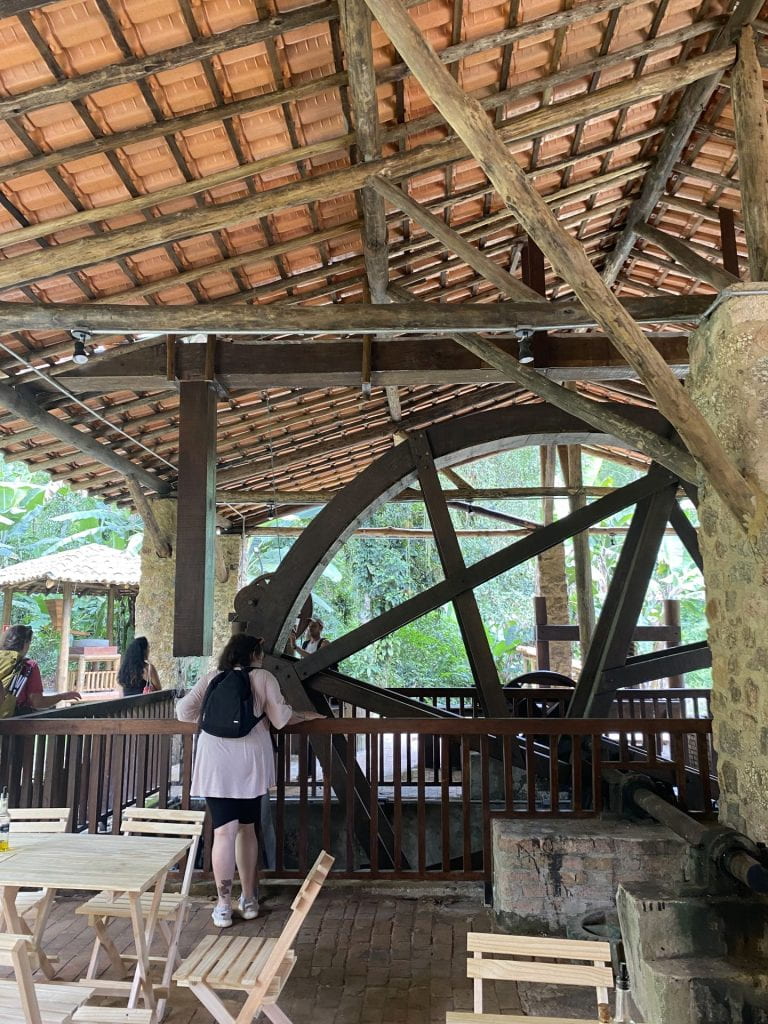On Saturday the 28th, we checked out of our hotel in Sao Paulo and boarded the crowded bus to head to Ubatuba. The drive was incredibly long, but it was worth it once we began to descend down the mountains and see the beautiful coastline. We then checked into our hostel and were able to explore the area. We were staying in a quaint part of the Ubatuba, which we all said reminded us of Raglan. Like Raglan, it was surrounded by beautiful but powerful beaches with waves that could throw you back to shore! We were also lucky enough to try Brazilian barbeque and a delicious Brazilian cocktail.
However, the highlight of our time in Ubatuba was the community visits. On our second day in Ubatuba, we visited the Boa Vista community in the Atlantic Rainforest. This community is part of the Guarani people, that are indigenous to Brazil. Upon first arriving at the community, we were greeted by ocean views. We then continued down a track into the rainforest, where the Guarani people welcomed us into their meeting house. They sang for us and taught us about their cultural practices. They emphasised that they welcome all people in their community so long as they keep an open mind. They also discussed how they have adapted and maintained their ways of life in the face of colonisation and modernisation.
The next day we visited the Quilombo da Fazenda. Quilombos are a specific form of African community in Brazil. They were originally places of refuge for runaway enslaved peoples.
Now, this form of community continues in Brazil and has been recognised by the Brazilian government. Here we got to explore their Aqua-Forest, where the community grows crops for both selling and eating. While not indigenous, quilombo communities also have cultural practices that have been impacted by colonisation and modernity. The community talked a lot about how their growing methods have been exploited by those outside the community and, as a result, were banned.
These visits highlighted how adaptable these communities are. Each roadblock they encounter, they adapt and seek ways to overcome it. They do this all while preserving their values. This was demonstrated by the quilombo community, who have changed their growing practices numerous times but remained consistent with their unwillingness to exploit nature. This resilience in the face of change and struggle was incredibly moving. These communities highlighted how in marginalised positions, your only option is to adapt to change. I am incredibly grateful for these unique experiences and look forward to meeting more indigenous communities in the week to come.
